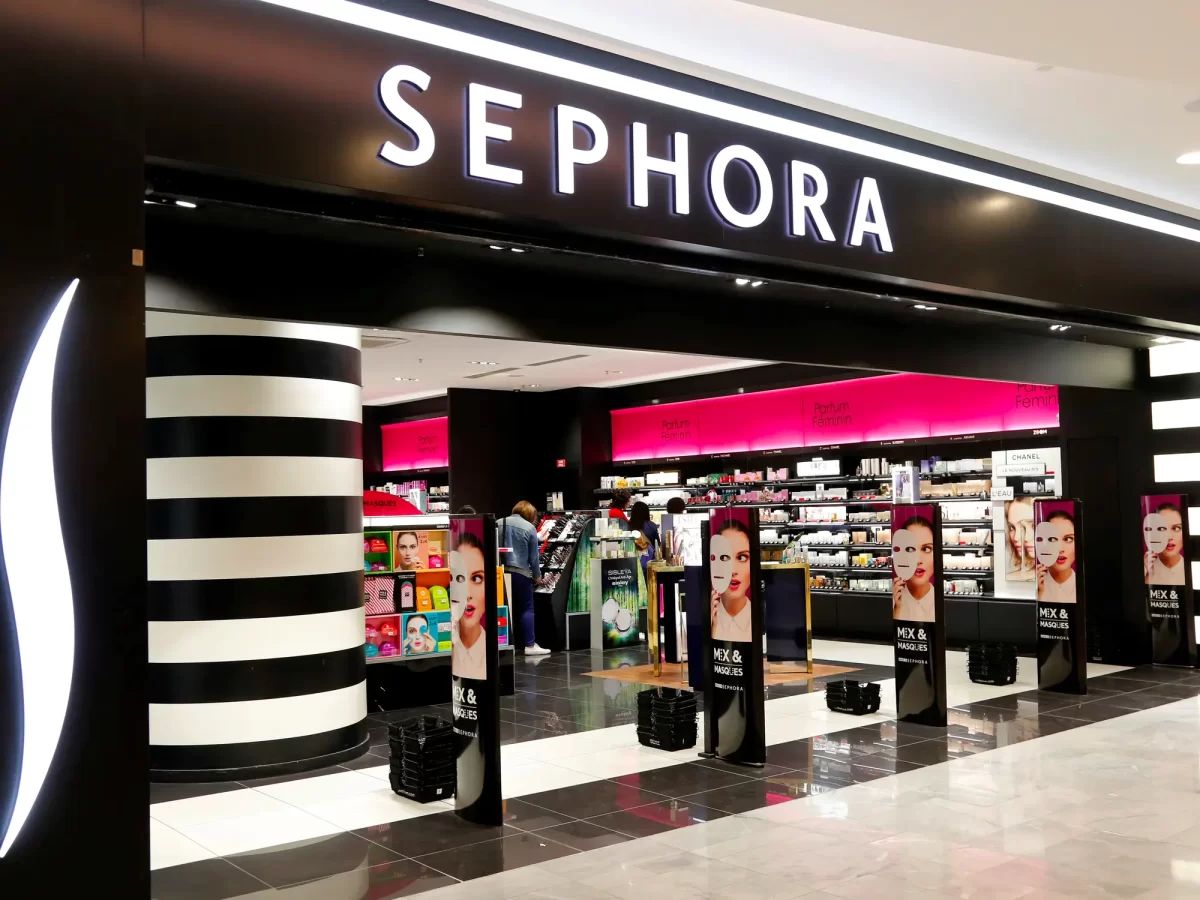As a kid, your older sibling is your idol- everything from their style, hobbies, and friends is praised and copied. It is natural to want to be like the people you admire, especially those who are older. However, some people believe that with the introduction of social media to children who are too young this phenomenon has gotten out of hand.
In the past couple of weeks, a popular TikTok trend has surfaced where people share their experiences with children not acting their age. They specifically mention “Sephora girls,” a name for girls usually twelve or younger who are shopping excessively at cosmetic stores such as Sephora.
Like the complaints, the popularity of brands like Drunk Elephant and Charlotte Tillbury, a makeup brand that has many trending products, comes from TikTok. Like younger kids copying their older siblings, these young kids are buying products that are not even intended for their use, as they see thousands of other kids, years older, using them. It is natural to want to fit in, be trendy, and act like one’s idols, but is there a limit?
Many of the products popularized by TikTok are not intended for children to use. For instance, a serum by Drunk Elephant is a best-seller despite it having retinol, a chemical that is not supposed to be used for anyone under at least twenty years of age. If used, it could have dangerous side effects for such young skin. This trend is not only present in skincare, in fact many young kids are feeling pressured to buy clothing brands such as Lululemon, Roller Rabbit, and Aviator Nation. All of these brands are highly overpriced and seem out of place for such young children to be wearing.
People’s complaints are not only towards the sheer volume of kids in-store at a given time but also their poor attitudes towards staff and other customers. Emily Jones spoke on this, saying that she got “shoved by a girl running to Drunk Elephant” while in the store. Drunk Elephant, a popular skincare brand, is especially popular among this age group and is one of the luring brands bringing children into stores.
The desire to fit in by buying these products and feelings of validation achieved by doing so, seem to create a feeling of entitlement for these children. Because they look like the college and high-school-aged people they see on TikTok and other social media, they feel it is okay to act that way as well. The problem is that this is not how people that age actually act, and these children are not properly learning manners and respect for others. Jones agrees with this sentiment, saying that early exposure to social media “is not a natural switch into adolescence but rather a conditioned craving for maturity before it’s biologically due.”
In addition to a lack of manners, these kids are being encouraged to value material things, wants, and luxury over experience, needs, or practicality. Although this is possible for any child to develop in a number of environments, over-exposure to social media catered to a much older environment encourages this behavior much quicker and earlier than before.
These issues demand the question, is TikTok and social media having a derogatory impact on children’s lives? The answer seems to be yes.
Despite this obvious connection, only one party can be held responsible- the parents. With the rise of technology and social media, children are being given devices with mostly free much earlier than they should be. Although not all parents are letting their children run wild with internet use, the more one is exposed to it, the more they want to consume, and as they get older, the more likely they are to be allowed access. Because this behavior is widely normalized, as the average for children to get a cell phone is twelve years old, even more parents are encouraged to allow their children not only phones but also social media access.
In order for children to begin to have normal childhoods again and not suffer these consequences, restrictions must be put on access to the internet for young children. Although it is clearly up to the parents on how they choose to parent their kids, the side effects of such use must be considered when allowing access to social media. Hopefully, in doing so, Sephora will see a decrease in sales from




















Ava Greenbaum • Mar 12, 2024 at 8:51 am
I fully agree with the issue of the rise of kids in Sephora and stores similar to that. I like the title of the article, it is a great way to pull people in to read the article. With this being such a prevalent problem it is great that you were able to bring light to this situation.